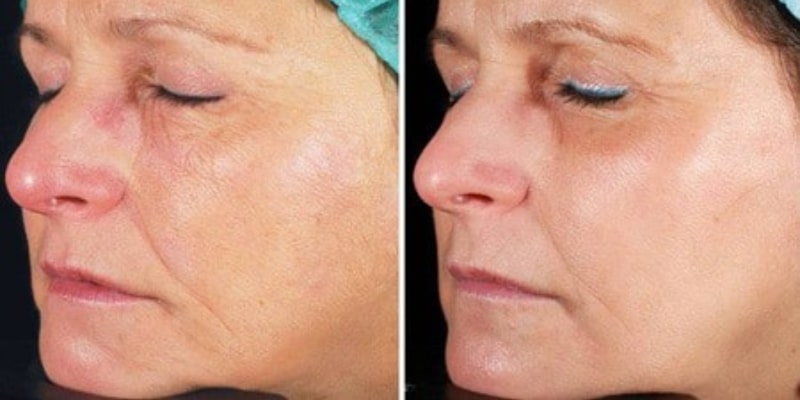Entering the perimenopause phase can be a period of significant change for many women, characterized by symptoms ranging from hot flashes to mood swings. This transition, often starting in a woman’s 40s, marks the gradual lead-up to menopause, where the body begins to produce less estrogen. For those seeking holistic approaches to navigating these changes, managing perimenopause naturally offers a viable path. By focusing on natural remedies, lifestyle adjustments, and mindfulness practices, this guide aims to empower women with the knowledge and tools to manage their symptoms in harmony with their body’s rhythms. From dietary tips to stress-reduction techniques, we will explore various strategies that have been shown to ease the perimenopausal experience, fostering a sense of well-being and balance.
In this article:
- We will explore the importance of recognizing and understanding the wide range of symptoms, providing insight into how they impact physical and emotional well-being.
- Holistic strategies, including dietary adjustments, lifestyle changes, and stress reduction techniques, will be discussed as effective methods for managing perimenopausal symptoms.
- The role of community and support systems in navigating the perimenopausal transition will also be highlighted, underscoring the importance of shared experiences and mutual support among women undergoing similar changes.
Acknowledging the Waves of Change
Perimenopause, also known as “menopause transition,” typically occurs in a woman’s 40s but can sometimes begin in her 30s. It’s characterized by irregular menstrual cycles and various physical changes. The hormonal fluctuations that occur during this time can result in a range of symptoms that impact day-to-day life.
What are the symptoms? Hot flashes, night sweats, sleep disturbances, and mood swings are just a few of the issues women may face. Understanding that these symptoms are part of a natural process and not a cause for alarm is the first step toward holistic management.
When Hormones Go Haywire: Understanding the Shift
During this stage, the ovaries begin to produce less estrogen, which ultimately leads to an imbalance of other hormones. This shift can have wide-ranging effects on a woman’s body and mind.
- Declining estrogen levels can lead to bone density loss, raising the risk of osteoporosis.
- Changes in progesterone production can affect the menstrual cycle and cause irregular periods.
- Fluctuations in hormone levels can impact mood and cognitive function.
Bridging the Gap: Diet and Nutrition to the Rescue
A well-balanced diet with a focus on key nutrients plays a significant role in managing symptoms and supporting the body through this transition.
- Essential fatty acids, found in foods like oily fish and flaxseeds, support hormonal balance.
- Calcium and Vitamin D intake are crucial for bone health, especially as estrogen’s role diminishes.
- Phytoestrogens in foods like soy and flax can help regulate estrogen levels naturally.
Moving with the Rhythm: Exercise and Body Movement
Regular physical activity is another key component in managing symptoms effectively. Exercises to help with perimenopause can range from gentle yoga and Pilates, which promote flexibility and stress relief, to more vigorous activities like cardiovascular workouts and strength training, which are essential for heart health and maintaining muscle mass. Establishing a routine that includes a variety of exercises can not only help mitigate some of the physical symptoms but also improve mental health, enhancing overall well-being during this transitional phase.
The Power of Palms and Plates: Mindful Eating and Portion Control
Mindful eating can help women avoid unnecessary weight gain.
- Being aware of hunger and fullness cues can prevent overeating.
- Using smaller plates can naturally lead to reduced portion sizes.
- Savoring each bite can make meals more satisfying, leading to a better relationship with food
Sipping to Coolness: Managing Hot Flashes with Earth’s Juices
Hydration is crucial, especially when dealing with hot flashes and night sweats.
- Drinking water throughout the day can help lower the body temperature and reduce the frequency of hot flashes.
- Avoiding caffeine and alcohol, which can trigger hot flashes, is advisable.
- Sipping on herbal teas like sage, chamomile, and peppermint can offer soothing relief.
Supplements in Your Arsenal: Enhancing Nutrition and Support
Incorporating certain supplements can provide additional support.
- Black cohosh is a herbal remedy that has been shown to reduce hot flashes and improve sleep.
- Magnesium can help reduce anxiety, support sleep, and prevent muscle cramps.
- Vitamin B complex can help manage stress and reduce the severity of mood swings.
And Breathe… Stress Reduction Techniques
Managing stress is paramount, as hormone imbalances can often exacerbate stress levels.
How can you achieve a sense of inner calm?
Unleashing the Mistress of Serenity: The Power of Meditation
Regular meditation practice can bring about a state of calm and help manage psychological symptoms.
- Simple breathing techniques can be incorporated into daily routines.
- Mindfulness exercises can help women stay rooted in the present moment, preventing undue stress about the future or remorse about the past.
- Guided imagery can be effective in managing physical discomfort and hot flashes.
Aromatherapy’s Perfumed Promises
Using certain scents can have a calming effect on the nervous system.
- Lavender oil is well-known for its relaxing properties and can be used in baths or diffusers.
- Clary sage is said to help balance hormones and reduce stress.
- Rose oil can aid in mood stabilization and reduce anxiety.
The Sound of Calm: Music and Its Therapeutic Rhythms
Music therapy can be effective in reducing stress and improving mood.
- Listening to relaxing music can reduce cortisol levels and promote a sense of well-being.
- Creating personalized playlists for different moods and activities can be highly beneficial.
- Exploring the healing power of chanting and frequency-specific sound can also be soothing.
Mind Over Hormones: Cognitive and Behavioral Approaches
Addressing the mental and emotional components is key for a holistic approach.
Cognitive Behavioral Therapy (CBT)
CBT can help women reframe their thoughts and manage the stress associated with symptoms.
- CBT techniques can be learned with a therapist or through self-help materials.
- The goal is to challenge and alter negative thought patterns that may be exacerbating symptoms.
- CBT can lead to more adaptive behaviors, reducing the overall impact on daily life.
Journaling Your Journey
Keeping a journal can help women track and reflect on their experiences.
- Writing about symptoms and their effects can provide clarity and a sense of control.
- Reflecting on positive changes and progress can boost morale and outlook.
- Journaling can be a therapeutic outlet for processing emotions and stress.
The No-Pill Policy: Natural Balancers of the Body
Many women prefer to manage this phase without the use of hormone replacement therapy (HRT).
Plant-Based Remedies
Herbal supplements and remedies can offer relief from symptoms for those who prefer a natural approach.
- Consuming ginseng can help combat fatigue and improve overall energy levels.
- Echinacea can boost the immune system, which may be weakened.
- St. John’s Wort is often used to manage mood swings and depressive symptoms.
Acupuncture and Traditional Chinese Medicine
Acupuncture, alongside other traditional Chinese medicine practices, can be effective in balancing the body’s energy and managing symptoms.
- Acupuncture points are selected to address specific symptoms, such as hot flashes and sleep disturbances.
- Chinese herbs, when prescribed by a qualified practitioner, can help restore equilibrium in the body.
- Lifestyle recommendations from a TCM perspective can provide additional support.
Progesterone Cream and Bioidentical Hormones
Some women find relief from symptoms with progesterone cream or bioidentical hormones.
- Progesterone cream can help restore balance to the reproductive hormones.
- Bioidentical hormones are synthesized from plant sources and are believed to be more in line with the body’s natural hormones.
- It’s important to work with a healthcare provider to determine the appropriate dosage and treatment plan.
Community and Comradeship: The Importance of Support Networks
Connecting with others who are going through similar experiences can provide validation and encouragement.
Support Groups and Online Communities
Participating in support groups or online forums can help women feel less alone in their journeys.
- Sharing stories and advice can be empowering and educational.
- Knowing that others are facing similar challenges can alleviate feelings of isolation.
- Building a network of support can provide a space for open communication and sharing of resources.
Final Thoughts
Navigating the twists and turns of this phase can be daunting, yet with the right resources and support, it’s a journey that can be embraced with confidence. The tips and strategies outlined in this document provide a comprehensive guide to managing symptoms naturally, fostering a community of support, and employing cognitive and behavioral techniques to maintain balance. Remember, you’re not alone on this path. For additional resources and support tailored to your unique experience, explore thisisperimenopause.com. Together, we can approach this phase of life armed with knowledge, support, and resilience.





